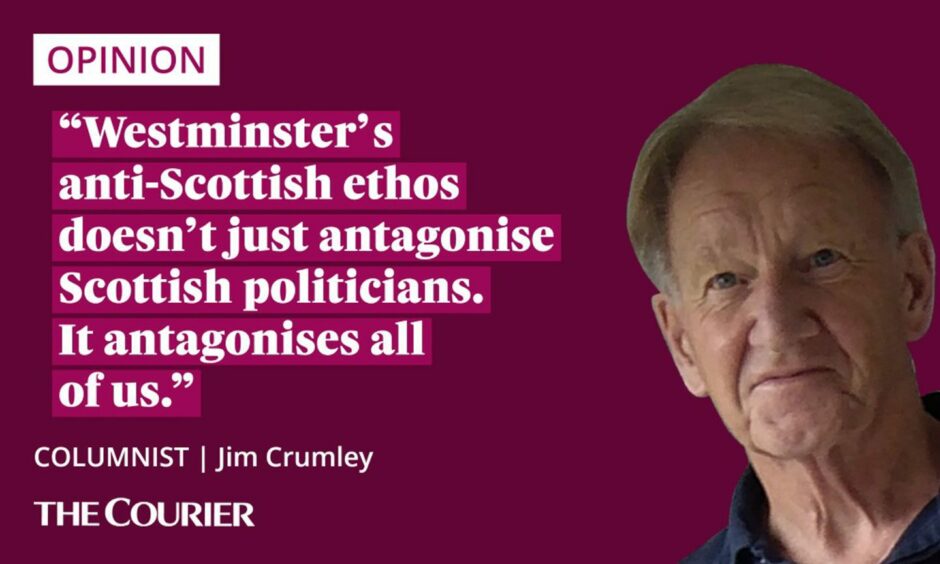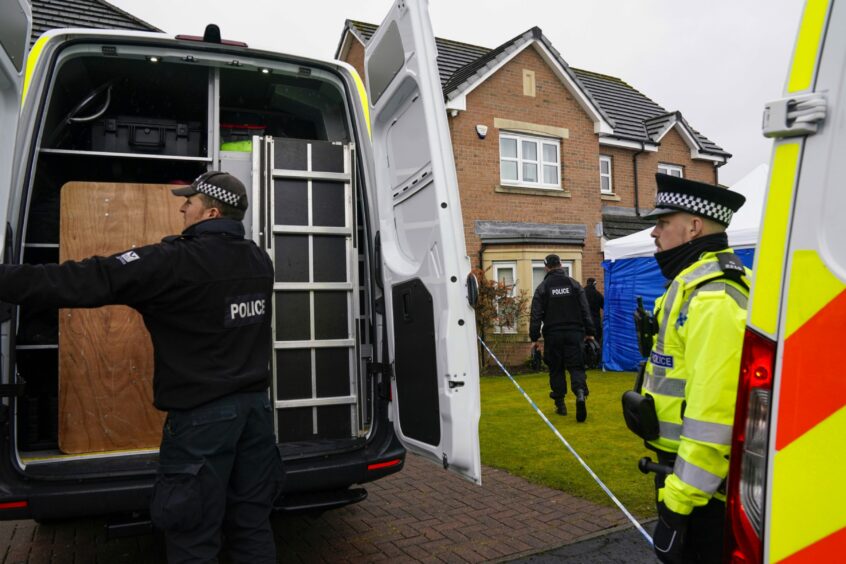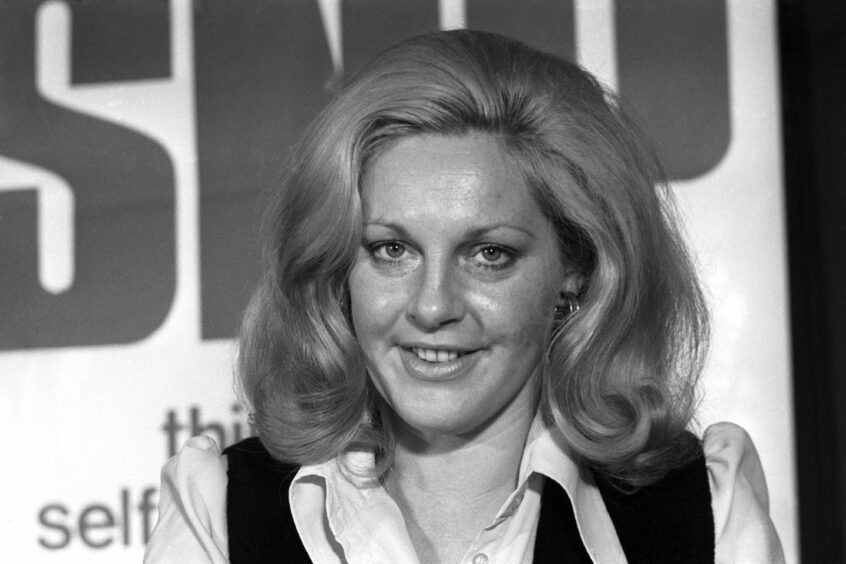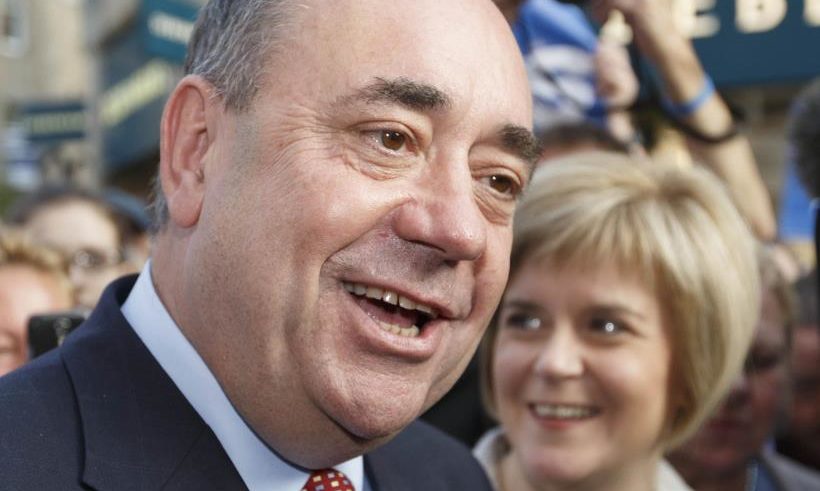There are two issues confronting our parliaments in Holyrood and Westminster. And it seems to me that one is infinitely more concerning than the other.
One: there is a question surrounding the Scottish National Party’s finances.
The sums of £660,000 and £120,000 have been mentioned and prominent people in the party have resigned.
Whatever the police investigation may eventually conclude, taken together, they are chickenfeed compared to the money that sloshes around within the sleazy swamp in which the Conservative Party in London conducts its business.
Theirs is a world of patronage and billionaire donors and seats in the Lords.

I imagine controversy over the financial dealings of politicians is as old as politics and that there never was a party which was immune.
That doesn’t excuse impropriety. But nor does it justify the gleeful witch-hunt which is strutting through the political establishment of London and its chums within the London-based media.
It is a witch-hunt which has the SNP in its sights.
SNP attacks are attempts to discredit Scottish independence
Two (and this is the infinitely more concerning of the tissues): the witch-hunt is not content with pursuit of the SNP.
There appears to be a wider, more sinister agenda, whose target is the institution of the Scottish Parliament. And no one seems to mind how ethical are the tactics to bring it about.
The tone is nicely set by Ian Macwhirter in The Spectator, under the headline “Scotland awaits the fate of the Third Woman”.
The headline writer, it turns out, means Nicola Sturgeon.
The article begins: “Scottish politics has never been more febrile. If we go a day without an arrest, a resignation, a revelation about financial mismanagement in the Scottish National Party we wonder what we’ve missed. It’s probably a little like this after a coup or in a failing Latin American state. Okay, there are no tanks rumbling along Sauchiehall Street, but the political and media worlds have been holding their collective breath waiting to see if the former First Minister Nicola Sturgeon will be arrested by police…”
Bear in mind that this portrayal of Scotland’s politics is designed for consumption by people who live inside the M25. So in that sense who cares?
But a coup, a failing Latin American state, a joke about tanks in Sauchiehall Street?
This kind of rot characterises a species of bile which is washing through those sectors of the London media which still think Brexit is a good idea.
Regardless of whether there has been financial impropriety or not, the wisdom that underpins the argument for Scottish independence does not change
If it wasn’t so cynical it would be funny.
But it chimes nicely with the ethics of a government that sees in the SNP’s discomfort an opportunity to discredit devolution itself.
Case for Scottish independence hasn’t changed
Westminster’s blocking of Holyrood legislation, twice now, is sledgehammer politics.
But if the Conservative government and, to a (slightly) lesser extent, the Starmer party opposite think that subduing the Scottish Parliament and its capacity to write and enact its own legislation will also subdue the pesky Scots, who voted for it and continue to vote Nationalist by a substantial majority, they will be dumbfounded (but I won’t) if the next election reveals a new enthusiasm for independence.
Scottish politics has been febrile for a long, long time now. Winnie Ewing anyone?
Margo MacDonald? Gordon Wilson’s 11 MPs? Alex Salmond’s sustained reign that made the SNP electable to govern? The Brexit vote? The independence referendum?
We have long memories here. We are passionate about our country and our politics.
And we have voted again and again and again in the 21st Century for the party that was created to bring about independence.
Westminster’s anti-Scottish ethos doesn’t just antagonise Scottish politicians. It antagonises all of us.
And here is the essential truth that London is up against. Regardless of whether there has been financial impropriety or not, the wisdom that underpins the argument for Scottish independence does not change.
Febrile politics are here to stay
The reason why London’s political establishment declined a second Scottish independence referendum is because they feared the outcome.
They should get used to fearing it, because it is not going to go away.
When Alex Salmond said in his resignation speech, “The dream shall never die”, he of all people knew what he was talking about.
Nicola Sturgeon may have fallen out with him eventually. But he taught and fashioned her into an outstanding political leader whose great gift to Scotland was to make all of us feel good about being Scots. To breathe a new confidence into the Scottish nation.
No one should think for one moment that we have forgotten that. Or that we have had cause to think again about the rightness of the principle of independence.
There are two issues confronting the parliaments of Holyrood and Westminster. And one of them is about sums of money and the other is about who we are, where we live, what we stand for, how we are governed and who governs us.
Scottish politics has never been more febrile? They ain’t seen nothing yet.














Conversation